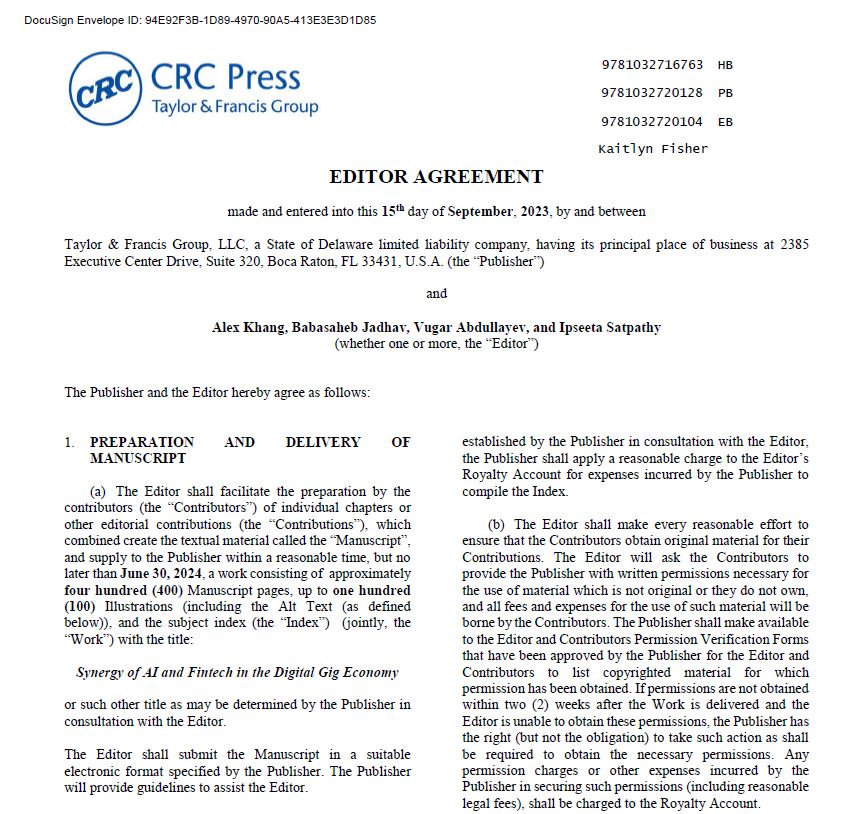
Global Research Institute of
Technology and Engineering
Home | About GRITEx | Research | Education | Publication | Contact Us

Global Research Institute of
Technology and Engineering
Home | About GRITEx | Research | Education | Publication | Contact Us

The convergence of artificial intelligence (AI) and financial technology (fintech) has ushered in a new era of innovation in the finance ecosystem, particularly within the context of the digital gig economy. The digital gig economy refers to a work environment where temporary, freelance, and contract-based jobs are prevalent, often facilitated through digital platforms. This emerging trend has created a unique set of challenges and opportunities, which AI and fintech are poised to address. By harnessing the power of AI-driven fintech solutions, the finance sector can enhance efficiency, accessibility, and inclusivity in the digital gig economy.
With this book, you’ll be able to implement the AI solutions, data analytics, IoT and blockchain technologies, and fintech applications using models and methodologies along with covering advanced techniques to support planting activities, to manage tasks, to predict outcomes, to forecast risks, to make informed decisions that facilitate improving in the various business services and finance activities in the field of Banking, Security, Healthcare, Manufacturing, Higher Education, Home and Building, Transportation, Airport, Population Management, Finance Services, Banking Services, Urban Management, Workforce Management, Smart City, Power and Grid System. We really believe that the technologies and applications of the The Synergy of AI and Fintech in the Digital Gig Economy book will favor the people's aspirations.
The Synergy of AI and Fintech in the Digital Gig Economy book proceedings will be published by CRC Press, Taylor & Francis Group, Florida, USA
No Publication Charge
The book mainly deals with six core fields of FinTech, IoT Technology, AI-enabled IoT Application, IoT-equipped Machine, IoT-integrated Drones, IoT Cybersecurity Techniques, and IoT Data Analytics for supporting in business development of services and production in the Digital Gig Economy.
You are invited to contribute chapters and papers and the scope of the book includes but is not limited to the following topics:
All Taylor & Francis (T & F) publications have a direct feed (indexed) to WoS and Scopus and newly submitted contents are submitted monthly.
At present, WoS contains 10,000+ books and T & F in the top ten contributing publishers.
All questions about submissions should be emailed to
